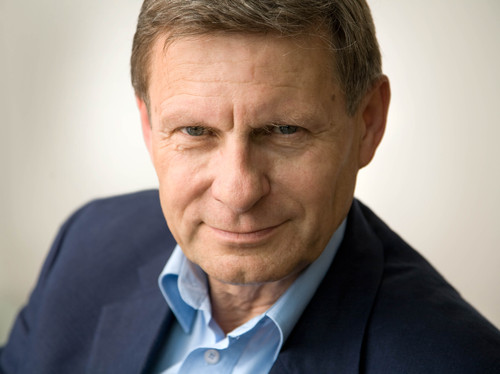
A lecture by Leszek Balcerowicz
at Danube Institute, 17.30, Wednesday 2nd March, Budapest 1067, Eötvös u. 10.
(Registration is required: please register here.
We are delighted to announce that the Danube Institute, in cooperation with the Institute of Economics at Corvinus University will be holding a lecture examining the different policies adopted by governments during the transition to market freedom and comparing the outcomes for their countries. The lecturer will be the father of „shock therapy”, Leszek Balcerowicz, who has had a distinguished career in the academy, politics, and more recently in Euro-Atlantic institutions.
*
Following the peaceful revolutions of 1989 and 1991, the countries of Central Europe, Eastern Europe and the former Soviet Union revealed to themselves and others that they had been living in an economic wasteland disguised as Utopia.
Their industries were producing goods for which there was no market; their infrastructure was old and crumbling; shortages of everyday products were severe; environmental conditions were poor and deteriorating; normal economic mechanisms such as price signals were not functioning (indeed were sometimes illegal); and the their populations, even when skilled and well-educated, had been deprived of the habits of industry and initiative.
Drawbacks and benefits were not, of course, evenly distributed beteen the different post-communist economies. Some had better prospects than others. Hungary which had apparently benefited from the limited incentives and relaxed controls of goulash communism was expected to prosper in a Western market environment; Slovakia, which had a surplus of inefficient heavy industries needing subsidy, was thought to be hopelessly non-competitive.
But liberalization produced surprises. Slovakia, forced to compete when Czech subsidies were removed following the velvet divorce, did so and prospered; Hungary, burdened by heavy debts inherited from its communist past, never quite fulfilled expectations; and Poland outdistanced all its neighbours economically following a painful but successful policy of market reforms known as „shock therapy.” For instance Poland’s GDP, which was broadly equal to Ukraine’s in 1990, is now approximately three times as large.
*
We are delighted to announce that the Danube Institute, in cooperation with the Institute of Economics at Corvinus University will be holding a lecture examining the different policies adopted by governments during the transition to market freedom and comparing the outcomes for their countries. The lecturer will be the father of „shock therapy”, Leszek Balcerowicz, who has had a distinguished career in the academy, politics, and more recently in Euro-Atlantic institutions.
Dr. Balcerowicz is a former Deputy Prime Minister and Minister of Finance (1989-1991 and 1997-2001), and a former President of the National Bank of Poland (2001-2007). He served as a member of the High Level Expert Group on EU Financial Supervision, chaired by Jacques de Larosiere. He is a member of the Group of Thirty founded by Paul Volcker. And in 2009, he was elected President of the International Atlantic Economic Society (IAES.).
He is a recipient of numerous honours from universities and of awards worldwide. In particular he was awarded Poland's highest decoration – the Order of the White Eagle - for his contribution to the reforms in Poland (2005).
In 2007, Leszek Balcerowicz was appointed Chairman of Bruegel, a European think tank. In 2008, he created the Civil Development Forum Foundation FOR, a free market think-tank in Poland. And in 2014 he was awarded with the Milton Friedman Prize for Advancing Liberty.
*
We are also delighted to announce that Dr. Péter Ákos Bod, a former Governor of the National Bank of Hungary, will respond to the lecture.
The meeting will be moderated by John O'Sullivan, President of Danube Institute.
Registration is required: please register here.
